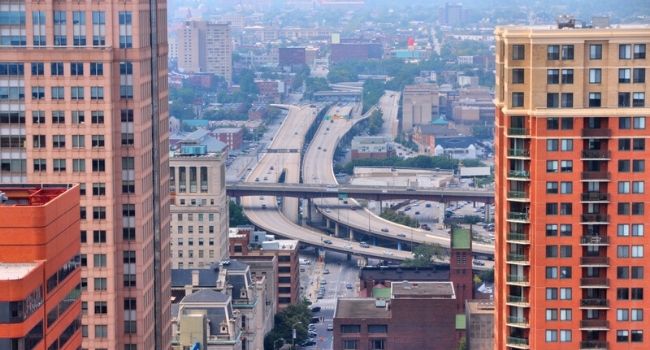
Baltimore Approves Six-Month Aerial Surveillance Program To Address Violent Crime
Three private surveillance planes will take images of Baltimore neighborhoods to be used in criminal investigations, an effort that will be studied to see if it lowers the crime rate.
- By Haley Samsel
- Apr 06, 2020
After intense pushback from civil liberties groups, three private surveillance planes were given permission to begin patrols of Baltimore on Wednesday after a 3-2 vote from the city’s Board of Estimates.
The board approved a six-month pilot program contract between the city and Arnold Ventures, a private philanthropy organization based in Texas. Laura and John Arnold will fund the planes, pilots, analysts and hangar space as part of the contract, with the goal of preventing crime by capturing images of 32 square miles of the city for a minimum of 40 hours per week, according to The Baltimore Sun.
In addition, the philanthropists will fund independent research grants to study the impact of the planes on the violent crime rate in Baltimore, which has remained high over the past several years. While Baltimore Police Commissioner Michael Harrison was initially skeptical of the proposal, he said that the company addressed many of his concerns over the past several months.
Planes cannot be used for real-time surveillance of communities, only to look back on events at a certain time and place. No one can be arrested solely based on the planes’ images, and data is only stored for 45 days unless it is needed for a specific investigation, Harrison said. Given these new considerations, Harrison advocated for the adoption of the pilot program last week.
“I fully appreciate that the opponents of this program ... have fundamental and philosophical beliefs against this kind of technology,” Harrison said, according to the Sun. “These differing viewpoints are not solely isolated to this claim and extend to many other tools BPD uses every day.”
Harrison also pointed to local support for the planes, which included an October poll of 500 residents that found a majority generally supported a “program to conduct aerial surveillance over the city of Baltimore to reduce serious crimes like murder.” There has also been increased interest in meetings about the pilot program, which had to be moved online in the wake of the coronavirus pandemic, he added.
Opponents pointed to a previous aerial surveillance program run in 2016 that appeared to have little impact on the homicide or violent crime rate. Harrison said that he was not police chief at the time, and that the program took place without coordination with the mayor’s office or the city council.
In addition, the American Civil Liberties Union of Maryland said it was “absurd” for the board to vote on the plan in the middle of the COVID-19, when there have not been opportunities for “meaningful public debate.” Baltimore has been under a statewide stay-at-home order for the past week.
“We’re going to start a study of this technology’s effectiveness when the entire city and state is on mandatory lockdown?” said David Rocah, an ACLU attorney. “Virtually none of the data collected now would be usable.”
The ACLU and other civil liberties groups argue that the planes will disproportionately surveil black and brown communities, and that the program could lead to constitutional rights violations from Baltimore police. Still, the planes are cleared to start flying as early as this month, according to The Baltimore Business Journal.
About the Author
Haley Samsel is an Associate Content Editor for the Infrastructure Solutions Group at 1105 Media.